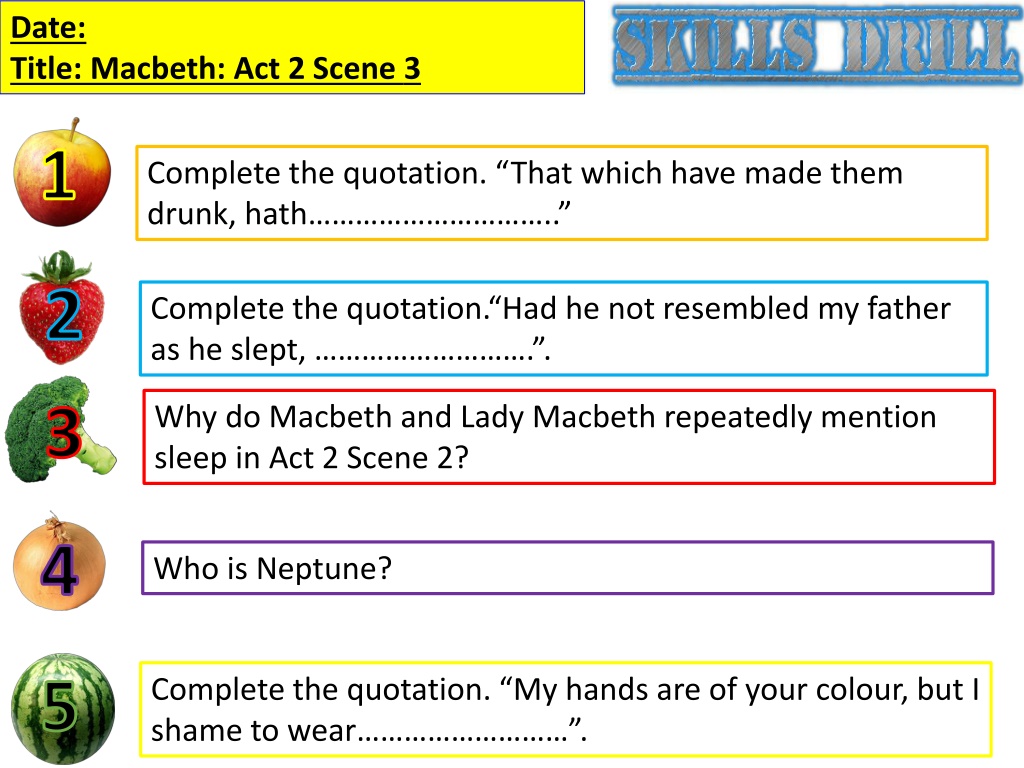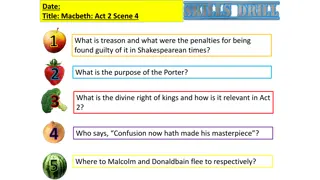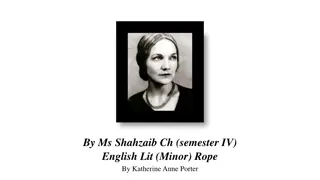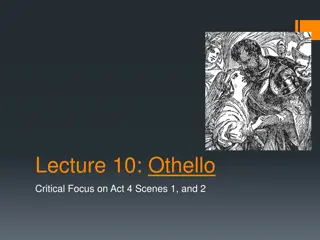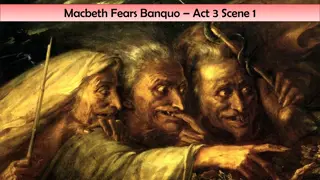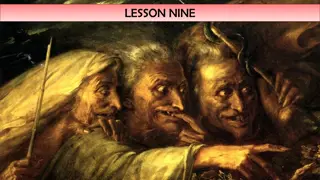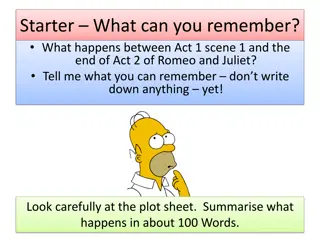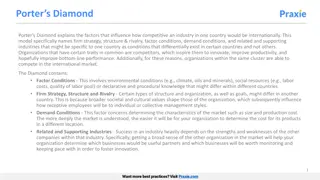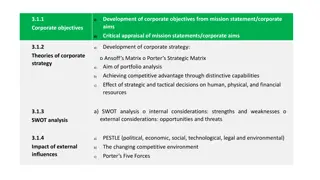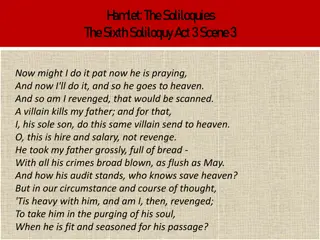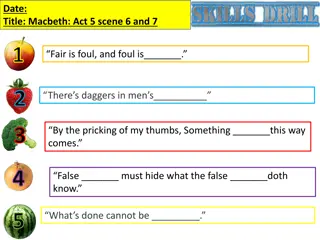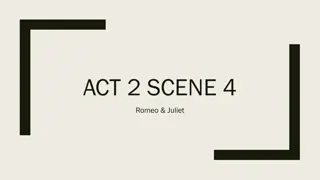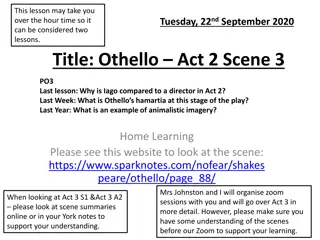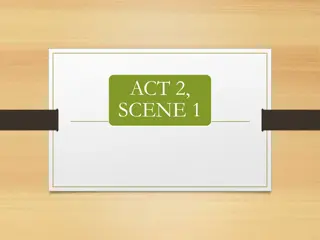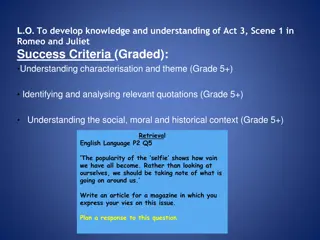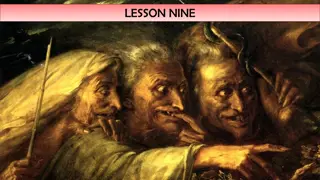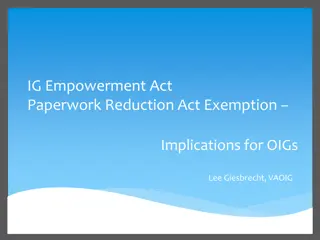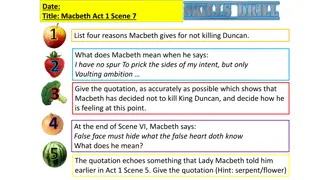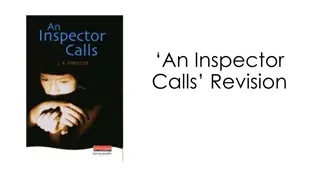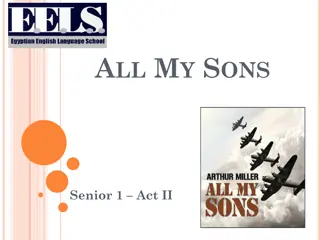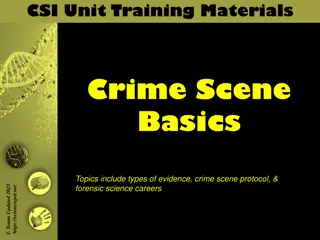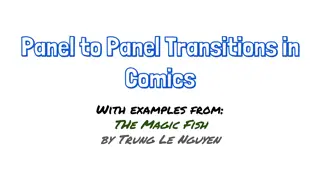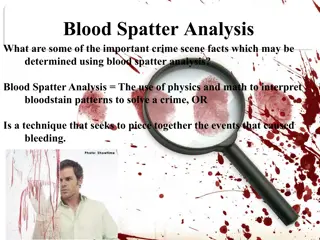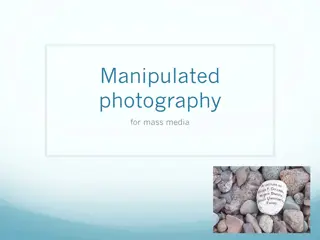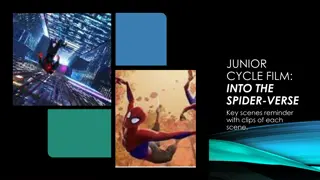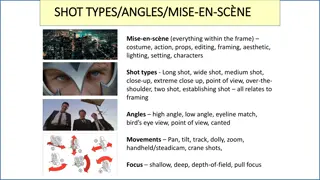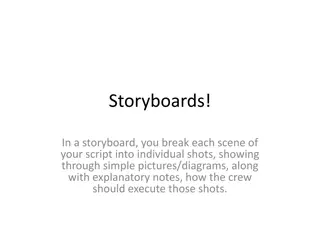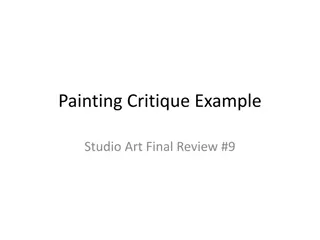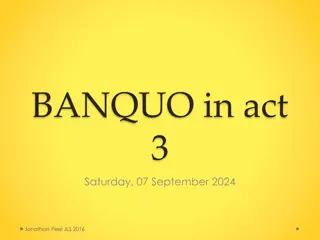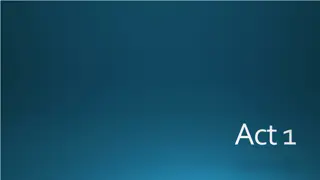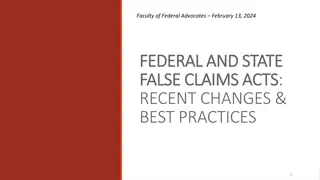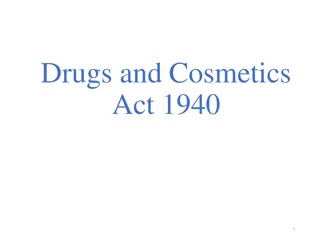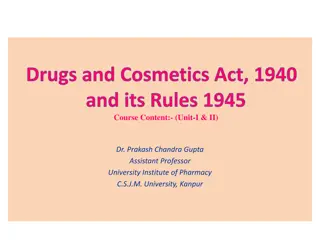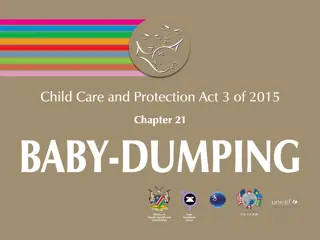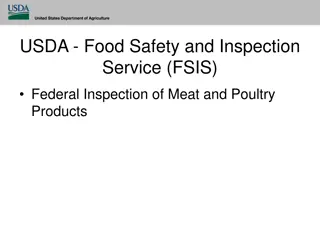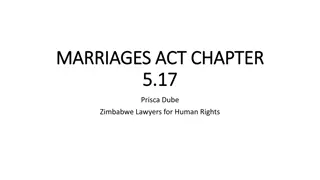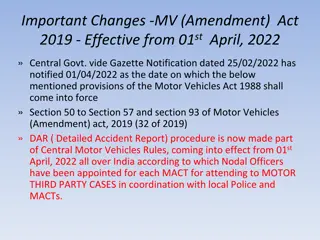Discovering the Porter in Macbeth's Act 2 Scene 3
Act 2 Scene 3 of Macbeth features the Porter's comedic interlude, providing relief from the tense atmosphere following Duncan's murder. The Porter's dialogue, filled with humorous references and wordplay, adds a layer of complexity to the play's themes. This scene contributes to building suspense and introduces elements of dramatic irony, engaging the audience in multiple ways.
Download Presentation

Please find below an Image/Link to download the presentation.
The content on the website is provided AS IS for your information and personal use only. It may not be sold, licensed, or shared on other websites without obtaining consent from the author. Download presentation by click this link. If you encounter any issues during the download, it is possible that the publisher has removed the file from their server.
E N D
Presentation Transcript
Date: Title: Macbeth: Act 2 Scene 3 1 Complete the quotation. That which have made them drunk, hath .. 2 Complete the quotation. Had he not resembled my father as he slept, . . 3 Why do Macbeth and Lady Macbeth repeatedly mention sleep in Act 2 Scene 2? 4 Who is Neptune? 5 Complete the quotation. My hands are of your colour, but I shame to wear .
Equivocate (verb) use ambiguous language so as to conceal the truth or avoid committing oneself. Etymology: early 15c., equivocaten, from Medieval Latin equivocatus, past participle of equivocare "to call by the same name, be called by the same name, have the same sound," from Late Latin aequivocus "of identical sound" (see equivocation). Related: Equivocated; equivocating. 1. Copy down the definition of the verb equivocate. 2. Transform it into an image to help you remember it. 3. Use it: Write one sentence using the word equivocate.
Act 2 Scene 3 Discovering Duncan What do these images depict? How may this connect to Macbeth? Key Terms: Equivocation Dramatic irony The "gates of hell" appear in Matthew 16.18, when Christ says, "And I say unto thee, that thou art Peter, and upon this rock I will build my church; and the gates of hell shall not prevail against it."
Read Act 2 scene 3 As we read Act 2 Scene 3, find and label the following: 1. An example of the lower class Porter speaking in PROSE compared to Macduff s VERSE. Sound effects (either as stage directions or within the speech of the characters). Delaying tactics on the way to Duncan s room which build suspense for the audience. Examples of dramatic irony which would build suspense for the audience. 2. 3. 4.
SCENE. The same. (Knocking within. Enter a Porter) Knock, knock, knock! Who's there? Faith, here's an English tailor come hither, for stealing out of a French hose: come in, tailor; here you may roast your goose. Porter Here's a knocking indeed! If a man were porter of hell-gate, he should have old turning the key. (Knocking within) Knock, knock; never at quiet! What are you? But this place is too cold for hell. I'll devil-porter it no further: I had thought to have let in some of all professions that go the primrose way to the everlasting bonfire. (Knocking within) Knock, knock, knock! Who's there, i' the name of Beelzebub? Here's a farmer, that hanged himself on the expectation of plenty: come in time; have napkins enow about you; here you'll sweat for't. (Knocking within) (Knocking within) Anon, anon! I pray you, remember the porter. Knock, knock! Who's there, in the other devil's name? Faith, here's an equivocator, that could swear in both the scales against either scale; who committed treason enough for God's sake, yet could not equivocate to heaven: O, come in, equivocator. (Opens the gate) (Knocking within)
an "equivocator" is a person who speaks ambiguously or doesn't tell the whole truth; to deceive someone or avoid committing oneself to a position The Porter s speech What is it s purpose? Consider The use of stage directions/sound effects The use of dramatic irony (Hint: the repetition of equivocator) The use of foreshadowing (Hint: porter of hell-gate )
Act 2 Scene 3 How does Shakespeare use dramatic irony to create tension in Act 2 scene 3? What connect is there between Fair is foul and foul is fair and Macduff s comment that Confusion now hath made his masterpiece ?
MODEL ANSWER: STRUCTURE Shakespeare uses dramatic irony in Act 2 Scene 3 to create tension for the audience in the lead up to the discovery of the murdered body of Duncan by Macduff. Macbeth says to Lennox that Twasa rough night which hints at the treasonous deed he and Lady Macbeth have carried out. The adjective rough is an understatement of the activities that he has been up to and enhances the impact of the dramatic irony here for the audience who would be feeling horrified at his actions and desperate for him to be caught. The audience s full knowledge of the horrors that await in the King s chambers makes Macbeth s comment seem all the more flippant.
What knowledge have you learnt today? What skills have you learnt/developed today? How has your previous learning helped you in today s lesson?
